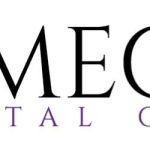How to Manage Dental Anxiety Before an Appointment: Tips and Strategies
- Understanding Dental Anxiety and Why It Happens
- Practical Strategies to Manage Your Anxiety
- Breathing Techniques to Calm Your Nerves
- Real-Life Stories of Overcoming Dental Anxiety
- When to Seek Professional Help for Dental Anxiety
It was a typical Wednesday morning when I received the call confirming my dental appointment. The minute I hung up, I could already feel the familiar wave of anxiety rising in my chest. I’ve struggled with dental anxiety for years, and like many people, the thought of sitting in that chair with someone poking around in my mouth can be overwhelming. But over the years, I’ve learned how to manage dental anxiety before an appointment—and I’m here to share what has worked for me, so you don’t have to face the fear alone.
Understanding Dental Anxiety and Why It Happens
Dental anxiety is incredibly common. In fact, it affects nearly 1 in 3 adults in the U.S. Whether it's due to a previous negative experience, fear of pain, or simply the sensation of being out of control, dental anxiety can prevent many people from seeking the care they need. Personally, my anxiety stemmed from a bad experience as a child, and it took years of gradual steps to feel comfortable with a dentist again.
The Causes of Dental Anxiety
For some, the sound of the dental drill or the sharp smells in the office can trigger feelings of unease. For others, the fear is tied to a lack of control. When you're lying back in a dental chair with your mouth wide open, it’s easy to feel vulnerable. Understanding these triggers is the first step in managing your anxiety. When I learned what specifically caused my anxiety—like the sound of the suction tool or being late to appointments—I was able to address each concern head-on with strategies to reduce those triggers.
The Impact of Dental Anxiety on Health
What’s even more concerning is how dental anxiety can affect our health. Putting off dental visits because of fear can lead to poor oral health, which can have long-term consequences for your overall well-being. I learned that avoiding the dentist only made the anxiety worse. The more time passed, the more I worried about the inevitable—but I realized that taking steps to address my fear actually helped me feel more in control and less anxious about the visits.
Practical Strategies to Manage Your Anxiety
One of the most important things I’ve learned is that managing dental anxiety doesn’t happen overnight. It’s all about implementing strategies that help calm your nerves and prepare you mentally for the appointment. Here are the techniques that have worked best for me:
1. Communicate with Your Dentist
Letting your dentist know about your anxiety is one of the most helpful things you can do. When I started sharing my fear with my dentist, I was pleasantly surprised by how understanding they were. They took extra care to explain each step of the process before doing it, and even paused to check in on me if I needed a break. Establishing this level of communication with your dentist is key to feeling more at ease.
2. Bring a Friend or Family Member
Having someone you trust by your side can make all the difference. For my first few dental appointments after overcoming my anxiety, I always brought a close friend along for moral support. Their presence was reassuring and helped me feel less alone during the procedure. If you have a friend who’s comfortable with dental visits, consider asking them to accompany you—it can be a game-changer!
3. Use Distractions
During my dental appointments, I found that distracting myself with music or podcasts was incredibly helpful. I would bring my headphones and listen to my favorite calming playlist or an interesting podcast to take my mind off what was happening in the dental chair. This small change helped me feel much more relaxed and in control.
Breathing Techniques to Calm Your Nerves
Breathing exercises are one of the easiest and most effective ways to reduce anxiety before a dental appointment. I started practicing deep breathing techniques at home before my visits, and it helped me feel much more relaxed going into the office. Here’s a technique I use:
The 4-7-8 Breathing Exercise
This simple exercise involves inhaling for 4 seconds, holding your breath for 7 seconds, and then exhaling slowly for 8 seconds. I’ve found that focusing on my breath in this way helps to calm my nerves, lower my heart rate, and reduce feelings of panic. Practicing this regularly before your appointment can help rewire your body’s response to dental anxiety.
Progressive Muscle Relaxation
Another helpful technique is progressive muscle relaxation, which involves tensing and relaxing different muscle groups in your body. When you focus on relaxing your muscles, your body’s stress response decreases. I found this to be particularly helpful when I felt the tension building during dental procedures.
Real-Life Stories of Overcoming Dental Anxiety
Overcoming dental anxiety isn’t easy, but it’s possible. I remember a time when I was so anxious about a routine cleaning that I almost canceled the appointment. But I pushed through, and the experience wasn’t nearly as bad as I had imagined. Other people I know have had similar experiences. One friend of mine, after years of dental fear, decided to try sedation dentistry. She said the experience completely changed her outlook on dental care, allowing her to finally manage her anxiety and maintain her oral health.
How Small Steps Made a Big Difference
For me, overcoming dental anxiety came down to taking small steps. The first time I went to the dentist after years of avoidance, I started with a simple consultation. No procedures, just a conversation. From there, I gradually worked my way up to more complex treatments. Every step I took built my confidence and made future visits easier to manage.
When to Seek Professional Help for Dental Anxiety
While many people can manage their dental anxiety with the techniques mentioned, there are times when professional help is necessary. If your fear is severe or completely prevents you from attending appointments, it may be time to speak to a therapist or a professional who specializes in dental anxiety. Cognitive behavioral therapy (CBT) has been proven effective for treating various anxiety disorders, including dental phobia.
If you're still struggling with dental anxiety and are looking for guidance on managing your fears, I recommend visiting [Dentistry Toothtruth](https://familydentistryonline.net). They offer helpful resources and support to ensure you get the dental care you need while managing your anxiety effectively. Take control of your dental health today!







 Axiom Dentistry4.0 (314 review)
Axiom Dentistry4.0 (314 review) Dr. Tom Family & Cosmetic Dentistry4.0 (272 review)
Dr. Tom Family & Cosmetic Dentistry4.0 (272 review) David K Buran, DMD5.0 (107 review)
David K Buran, DMD5.0 (107 review) Valleywise Community Health Center - Avondale4.0 (343 review)
Valleywise Community Health Center - Avondale4.0 (343 review) Higley Park Dental4.0 (563 review)
Higley Park Dental4.0 (563 review) Omega Dental Care4.0 (74 review)
Omega Dental Care4.0 (74 review) The Importance of Oral Health Education During Pregnancy for a Healthy Pregnancy
The Importance of Oral Health Education During Pregnancy for a Healthy Pregnancy Best Tips for Brushing Your Teeth Properly for Healthy Gums: Essential Techniques for Oral Health
Best Tips for Brushing Your Teeth Properly for Healthy Gums: Essential Techniques for Oral Health Why Skipping Dental Checkups Can Lead to Bigger Oral Health Problems
Why Skipping Dental Checkups Can Lead to Bigger Oral Health Problems Advantages of Porcelain Dental Restorations
Advantages of Porcelain Dental Restorations How Can Diabetes Cause Tooth and Gum Problems? Preventing and Managing Oral Health Issues
How Can Diabetes Cause Tooth and Gum Problems? Preventing and Managing Oral Health Issues Healthy Habits for Promoting Good Oral Health and Hygiene: Tips for a Healthy Smile
Healthy Habits for Promoting Good Oral Health and Hygiene: Tips for a Healthy Smile